|
|
||||||||||||||||||||
|
HOME
|
US Navy -
ships
|
US Navy - air
units
|
USMC - air
units
|
International
Navies
|
Weapon Systems
|
Special Reports |
||||||||||||||||||||
|
Republic of Singapore Navy Invincible (Type 218SG) class Submarine |
||||||||||||||||||||
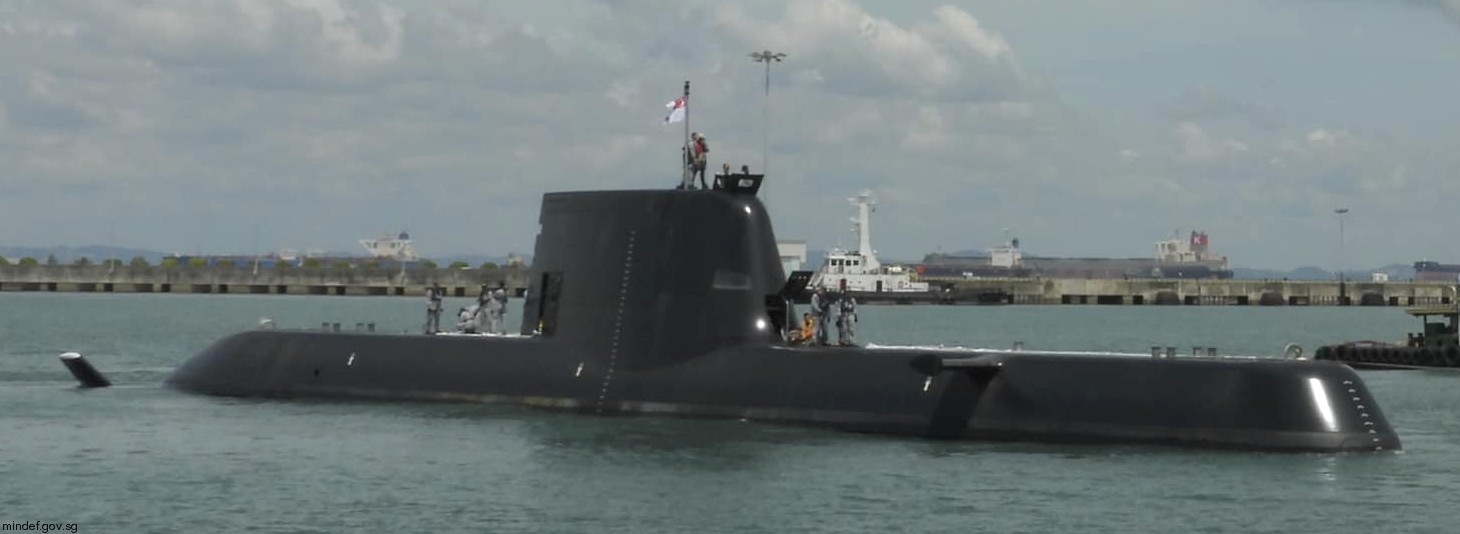 |
||||||||||||||||||||
| 04/24 | ||||||||||||||||||||
| Units: | ||||||||||||||||||||
|
||||||||||||||||||||
| Specifications: | ||||||||||||||||||||
|
Type: Attack Submarine, Air-independent propulsion (SSK / AIP) Builder: ThyssenKrupp Marine Systems (TKMS), Kiel, Germany Displacement: 2000 tons (surfaced) / 2200 tons (submerged) Length: 70 meters (229 feet 8 inches) Beam: 6.3 meters (20 ft 8 in) Draft: ? Speed: 10 knots (19 km/h) surfaced / 20 knots (37 km/h) submerged Range: ? Endurance: 28-42 days underwater Complement: 28 Propulsion: 2 x Diesel generators 2 x PEM fuel cells (AIP) 1 x electric motor 1 shaft, 1 propeller Armament: 8 x 21-inches (533 mm) torpedo tubes for heavy-weight torpedoes submarine launched anti-ship missiles naval mines Systems: Active and Passive Sonars Atlas Elektronik/ST Electronics Combat Management System (CMS) ECM suite |
||||||||||||||||||||
|
The Republic of Singapore Navy's Archer-class and Challenger-class
submarines will be replaced with four new Type 218SG submarines. The
new submarines are part of the RSN's long-term capability
development and submarine force renewal programme. The RSN has
operated the current submarine fleet, built in the 1960s, for about
two decades and gained operational experience in our local waters.
The Type 218SG submarines will be the first new-build submarine
tailored to meet the RSN's unique operating conditions, and will
enhance the RSN's capability to better protect Singapore's waters
and safeguard our access to the sea lines of communication. Characteristics: The Type 218SG submarines are equipped with significantly improved capabilities such as modern combat systems and Air Independent Propulsion systems. They will also be able to carry a wider range of mission payloads. The Type 218SG submarines also incorporate design innovation and advanced maintenance and engineering concepts to optimise training, operation and maintenance costs. The submarine programme is progressing well with the first two Type 218SG submarines having commenced construction, and the remaining two Type 218SG submarines having commenced steel-cutting in January 2018. The submarines are projected to be delivered from 2021 onwards. In addition to crew training in Germany, the RSN is also developing a Submarine Trainer Suite (STS) to cater to the training needs for crew of the Type 218SG submarines. The STS is currently in the design review phase and will comprise a Command Team Trainer, Steering and Diving Trainer, Virtual Procedural Trainer and Maintenance Trainer. These Trainer systems will enable the RSN to train and qualify submariners in realistic, simulated operations at sea. source: MINDEF - - - - - The Invincible-class submarines, formally classified as the Type 218SG submarines, is a class of conventionally-powered attack submarines, ordered by the Republic of Singapore Navy (RSN) from German-based naval conglomerate ThyssenKrupp Marine Systems (TKMS). The Type 218SG is an extensively-customised derivative of the export-oriented Type 214 submarine, with specific design characteristics drawn from Type 212 submarines. They feature several capabilities, including a substantial level of automation, a significant payload capacity, enhanced underwater endurance and superlative ergonomics. Singapore's Ministry of Defense (MINDEF) ordered a total of four Type 218SG submarines, of which two were ordered in 2013 and two more in 2017, as a replacement to the RSN's existing Challenger-class and Archer-class submarines. Of the four submarines that were ordered, three have been launched, while the fourth remains under construction. As of July 2023, the first submarine of the class, the Invincible, is being used for the training of the RSN's submariners, while the second, the Impeccable, is scheduled to undergo local sea trials aimed at achieving operationalization. The RSN plans to have all four submarines in active service by 2024. The design of the Type 218SG was jointly created by Defence Science and Technology Agency (DSTA), ThyssenKrupp Marine Systems (TKMS) and the Republic of Singapore Navy (RSN). The design of the submarines is highly customised - conceived to fulfill specific naval requirements of the RSN - including naval operations in littoral waters, guarding sea lines of communication (SLOC), intelligence-gathering (ISTAR) and special operations. The design is believed to be based on the Type 214 export-centric submarine, with design inferences from the Type 212 submarine - both of which were designed by TKMS. The design of the Type 218SG is also believed to have been influenced by the Type 216 submarine concept. The Type 218SG has a length of 70 metres (229 ft 8 in) and a beam of 6.3 metres (20 ft 8 in), with an overall displacement of about 2,000 t when surfaced and 2,200 t while submerged. It has an estimated speed of about 10 knots (19 km/h; 12 mph) while surfaced and 15 knots (28 km/h; 17 mph) while submerged. Features: The Type 218SG features several unique characteristics, such as: An X-shaped rudder configuration similar to that on the Type 212 submarines and the Dakar-class submarine of the Israeli Navy, for better maneuverability in Singapore's busy but shallow littoral waters around the Straits of Malacca and the South China Sea - as opposed to the Type 214's cruciform rudder configuration. A fuel-cell powered air independent propulsion (AIP) module, which allows it to remain submerged for about 50% longer than the Archer-class submarines; several estimates put the Type 218SG's underwater endurance at about 28-42 days (4-6 weeks), without snorkelling. A Horizontal Multi-Purpose Airlock (HMPL) - which can be utilised to launch torpedoes, special operations forces, divers and submarine-launched cruise missiles (SLCM); the submarines also come with an option to integrate a "Vertical Multi-Purpose Airlock" (VMPL), for launching missiles vertically, similar to a Vertical Launching System module. Use of extensive ergonomical factors for crew comfort - such as air conditioning, enlarged living quarters, additional showering facilities, individual on-sharing bunk beds, personal media entertainment systems (similar to those in commercial airlines) toilet cubicles, additional storage space and equipment unique to the physiques of the RSN's sailors. Extensive features of automation - such as a "Combat Management System" (CMS) jointly developed by Atlas Elektronik and ST Electronics and data analytics/decision-support engines developed by the DSTA - which allows the crew to operate the submarine on three 4-hour shifts, instead of two 6-hour shifts, thus allowing greater periods of rest during protracted underwater deployments. The high-level of automation also reduces the crew complement to just 28 (fewer than other contemporary conventional submarines), of which around 10 are on active duty at any-one time, with the other 18 off-duty or resting. Utility of specific materials accustomed to Singapore's tropical climate and saline waters. A higher payload carrying capacity and greater firepower than the Challenger-class and Archer-class submarines, owing to its larger size. source: wikipedia |
||||||||||||||||||||
| images | ||||||||||||||||||||
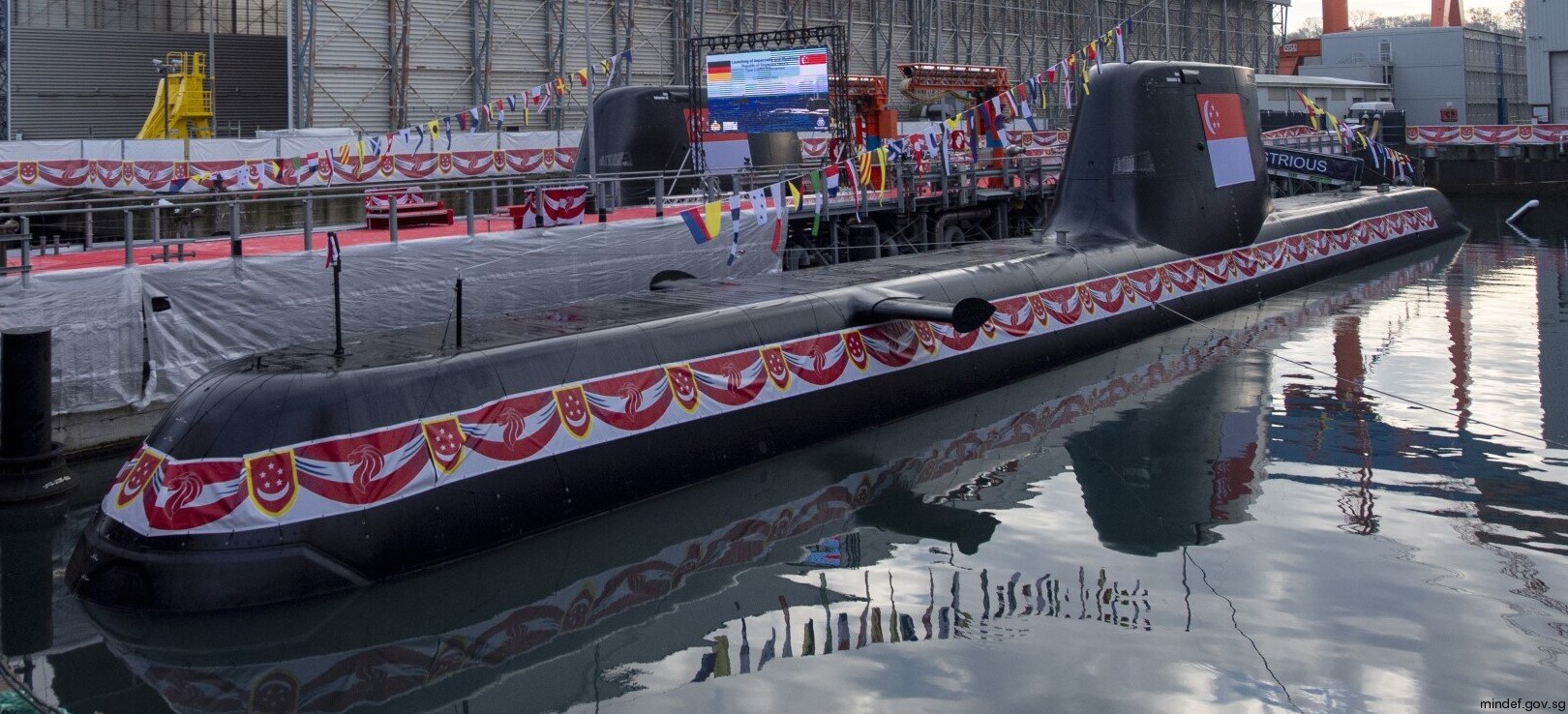 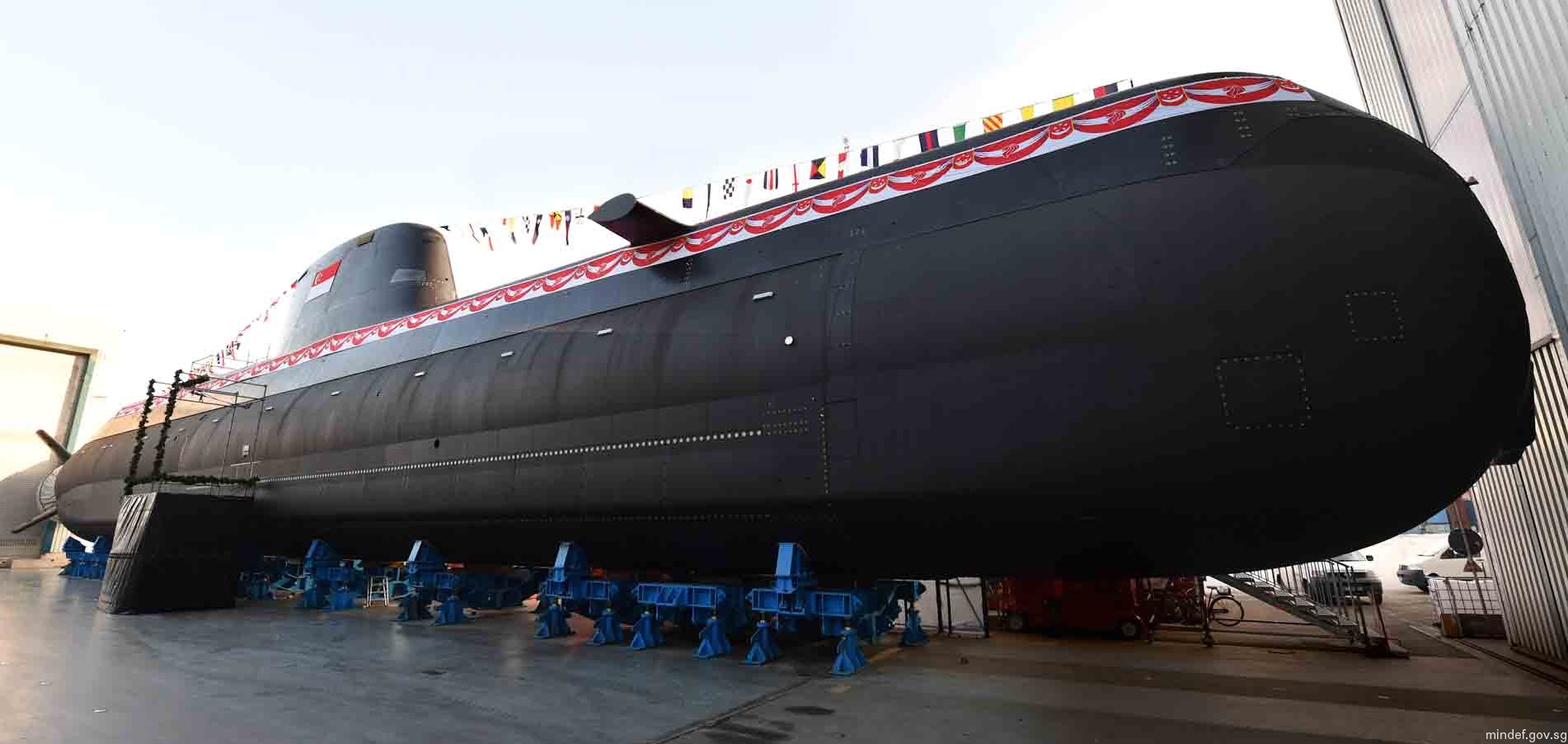 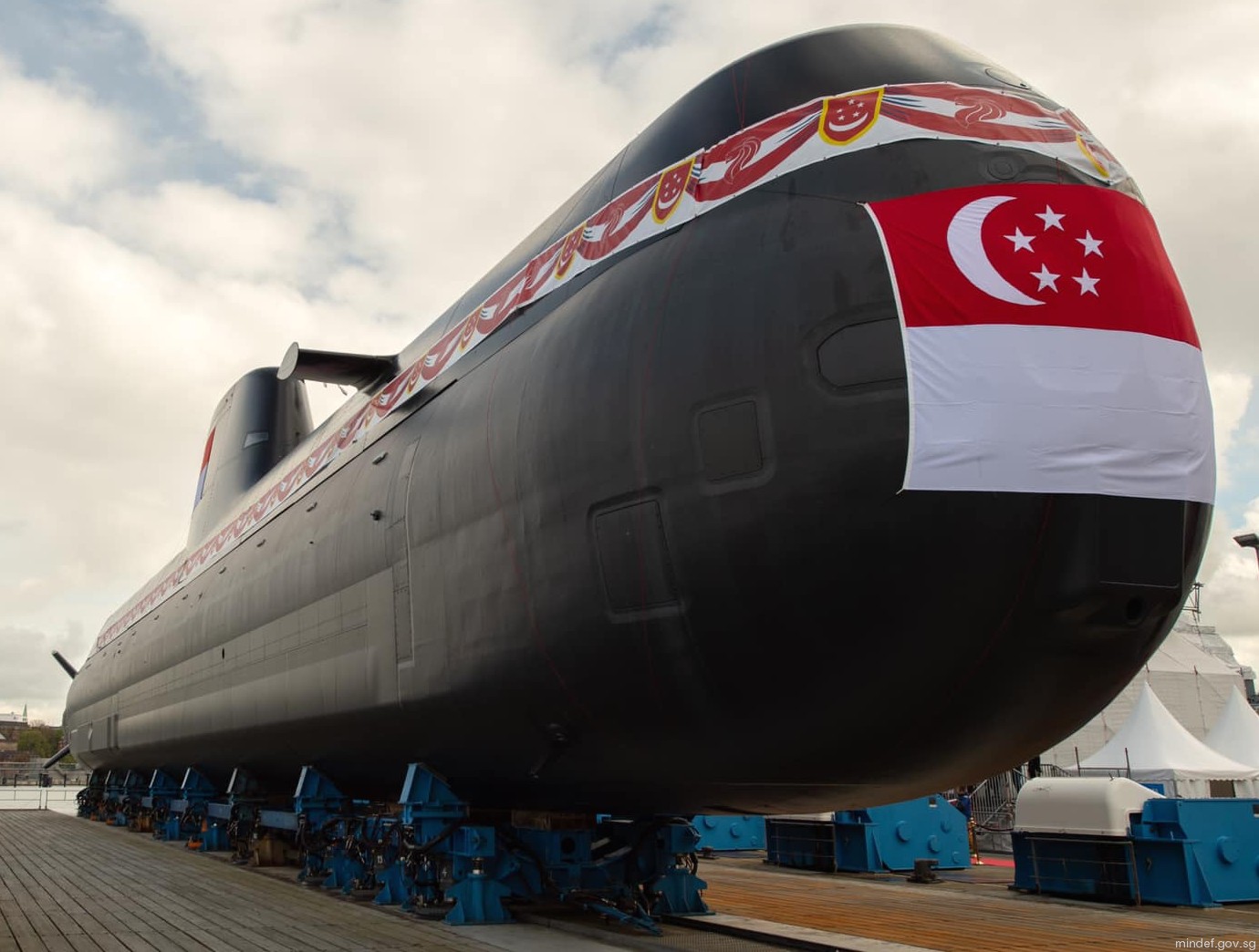 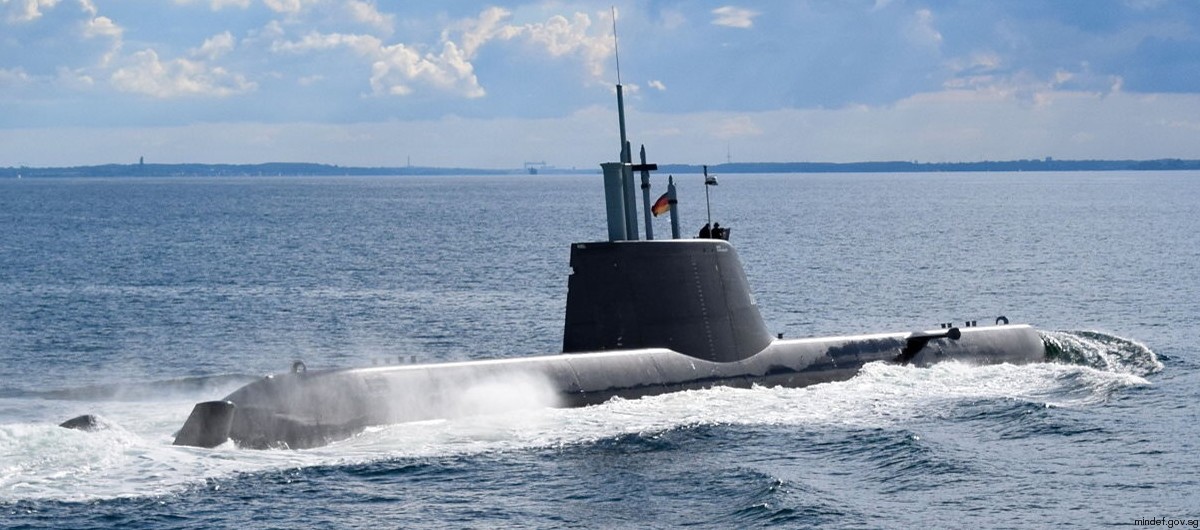 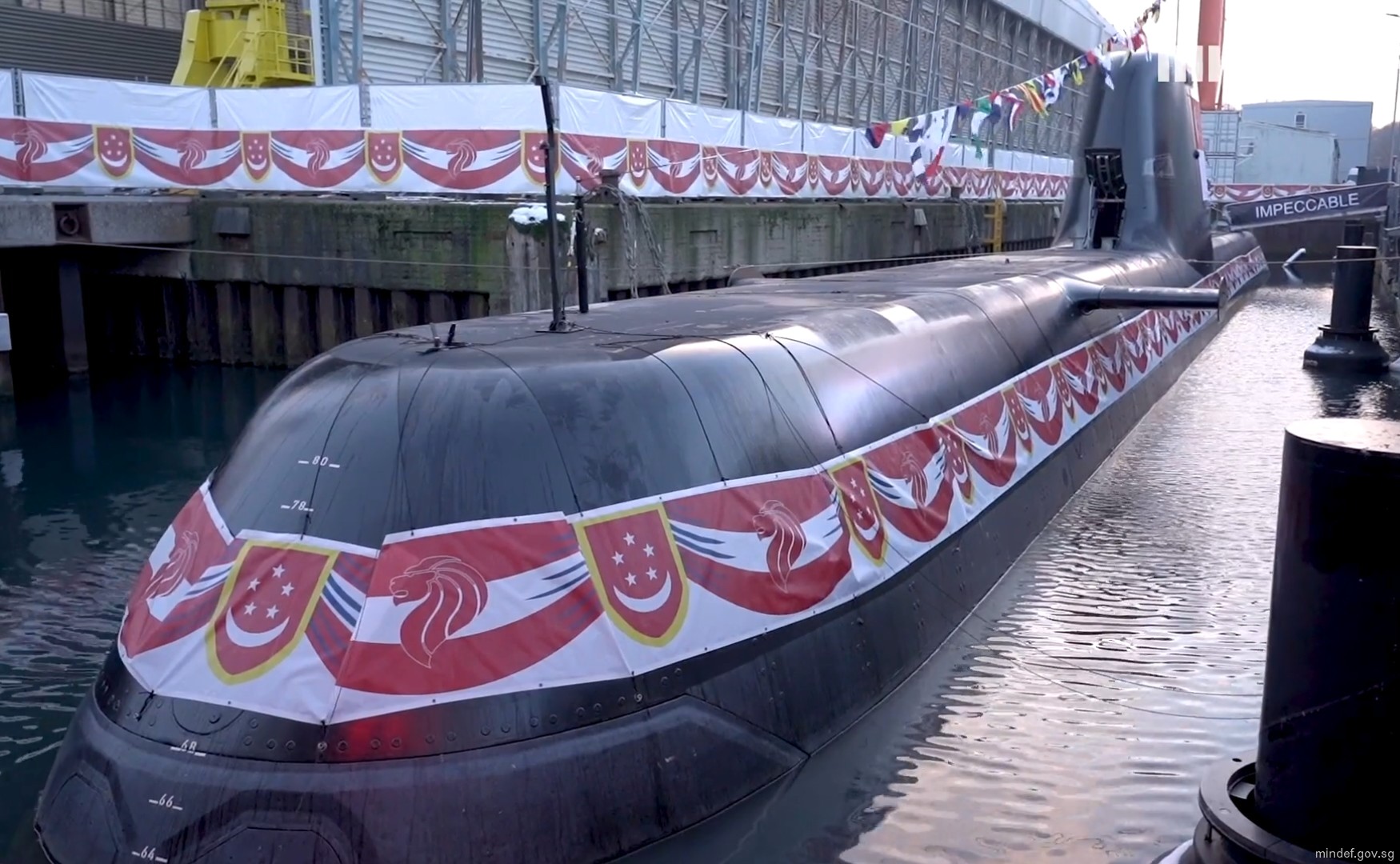 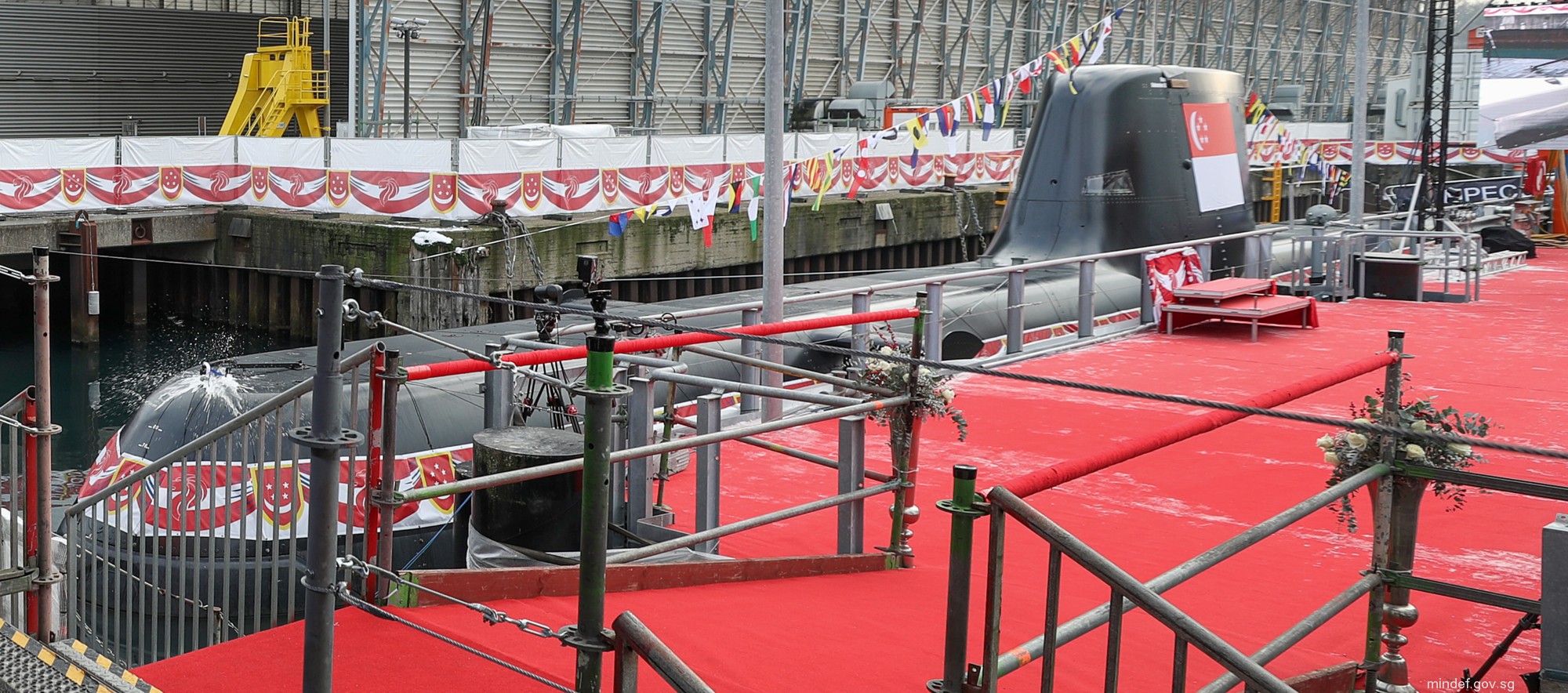 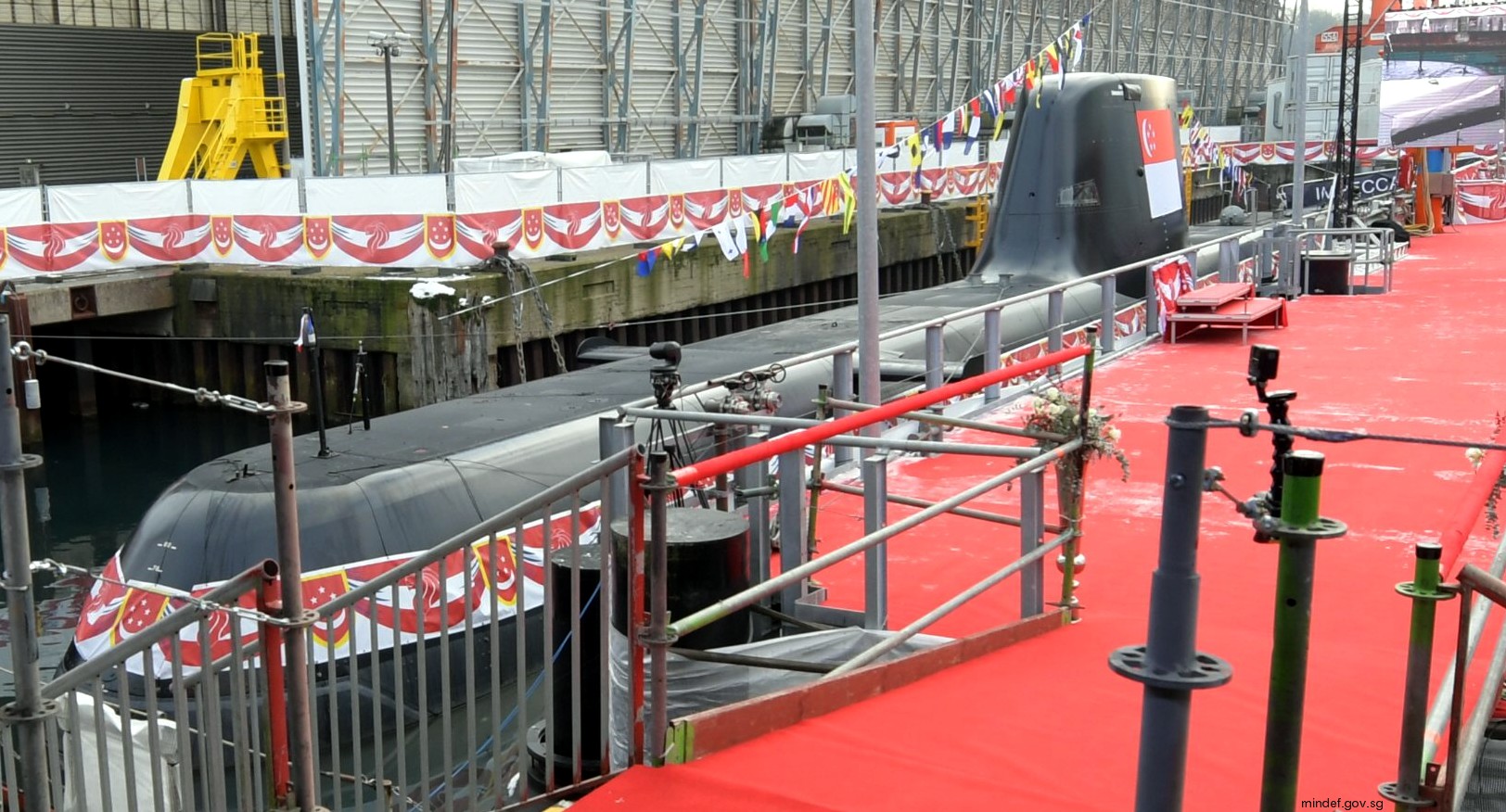 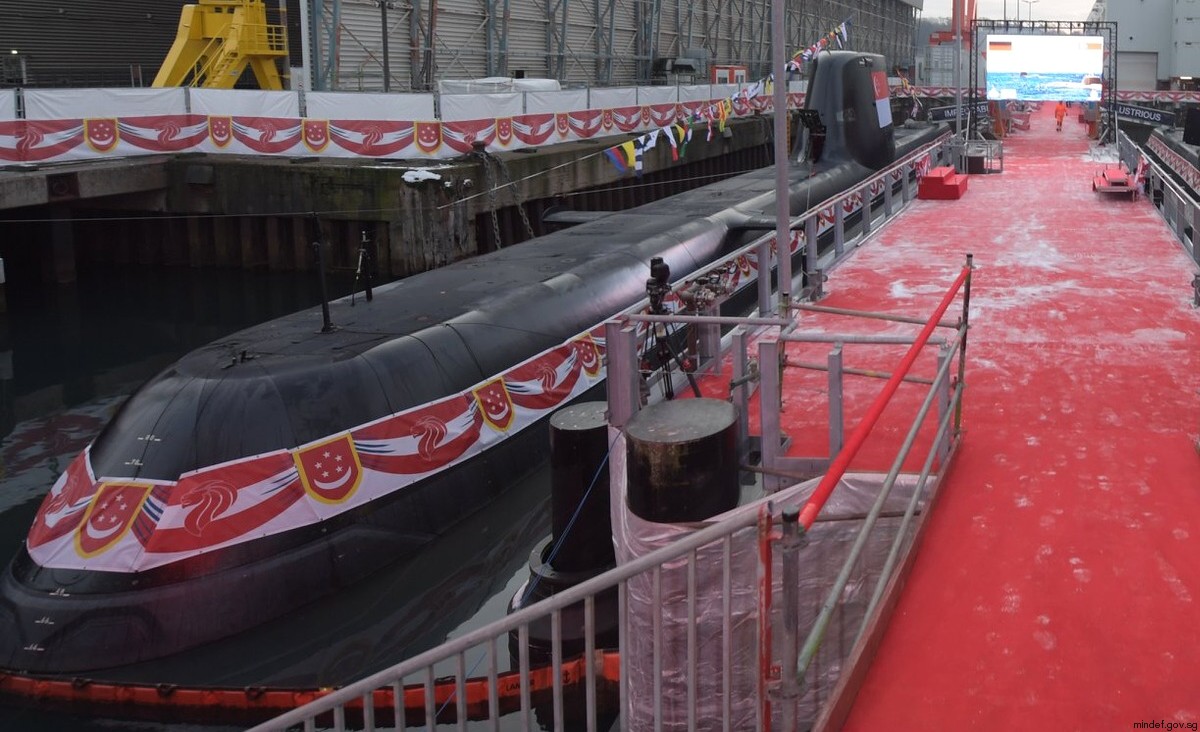 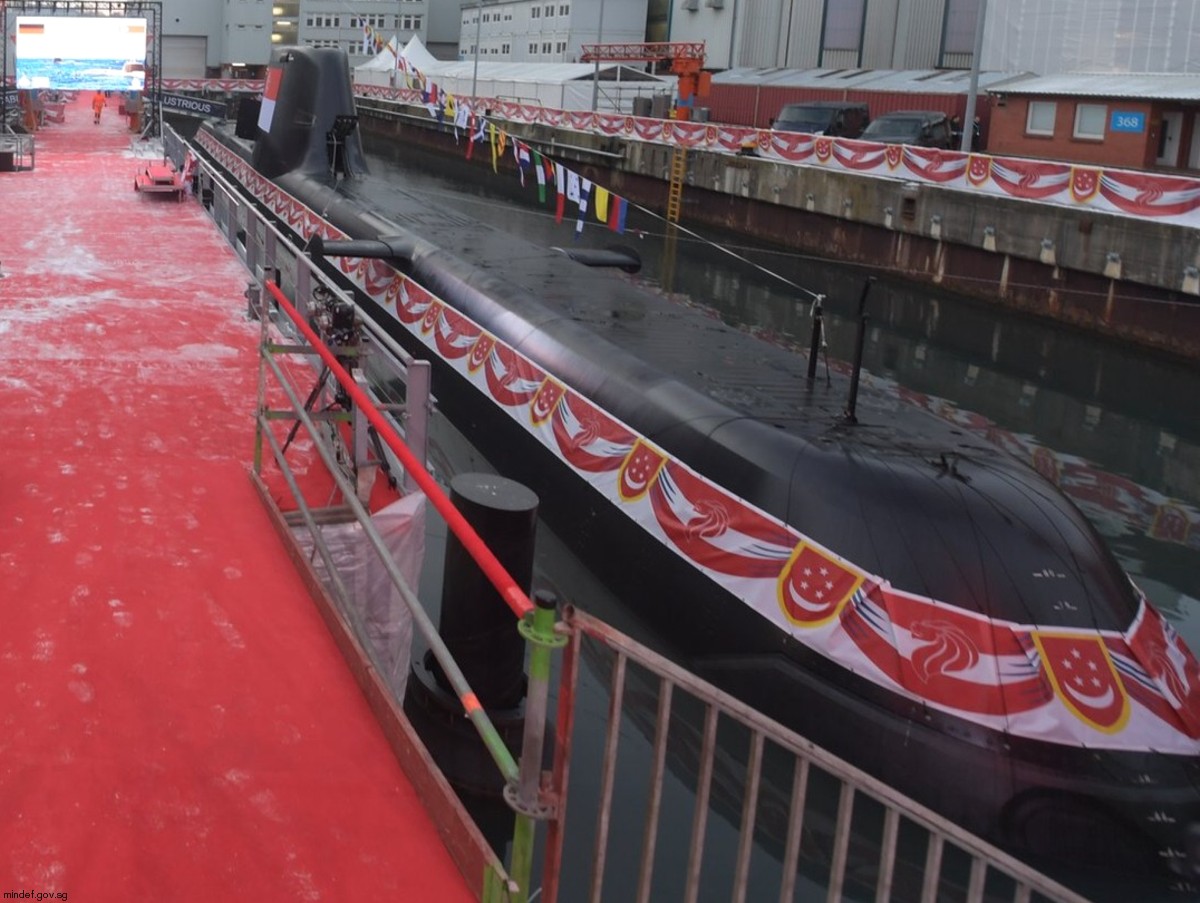 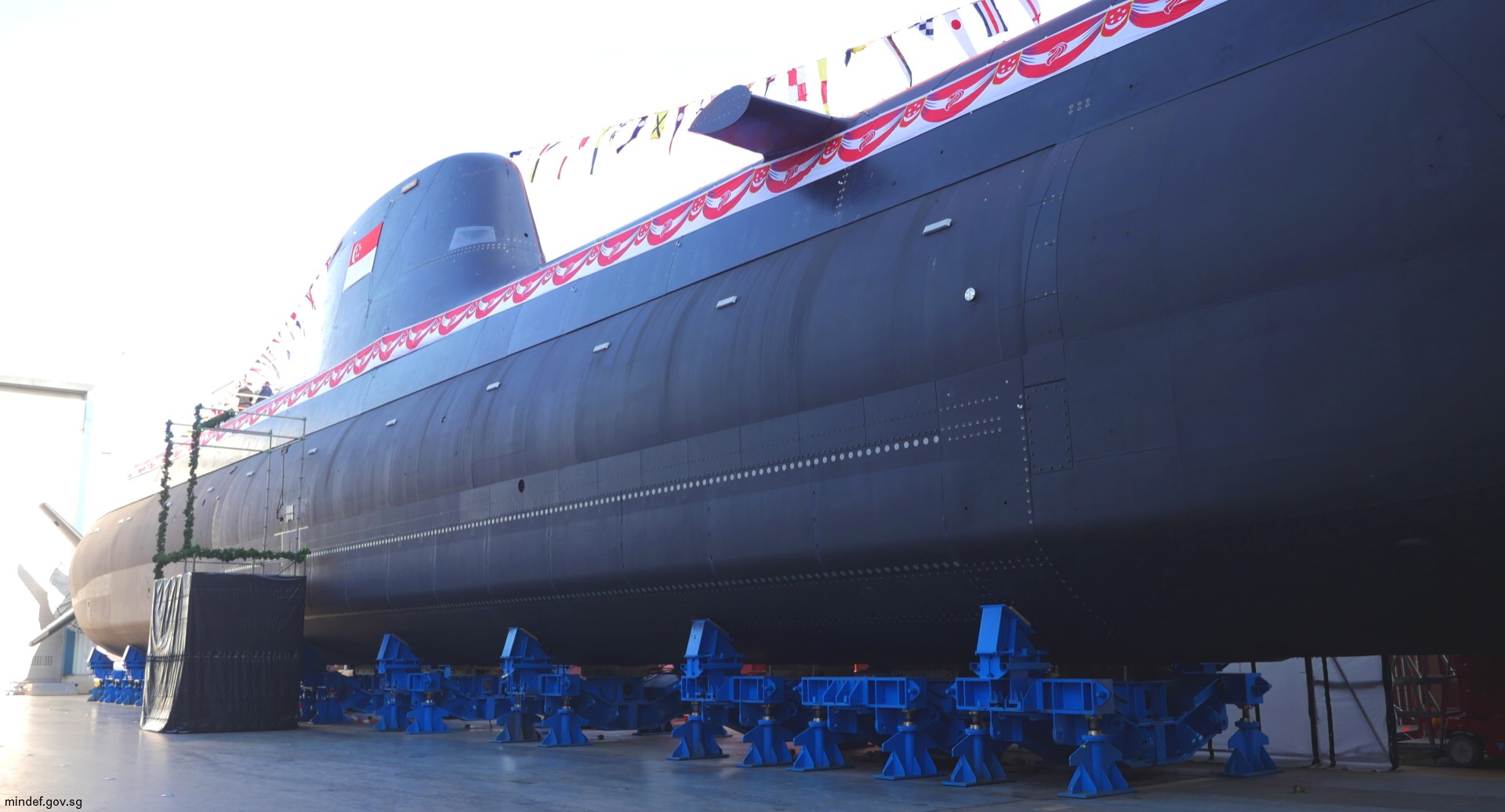 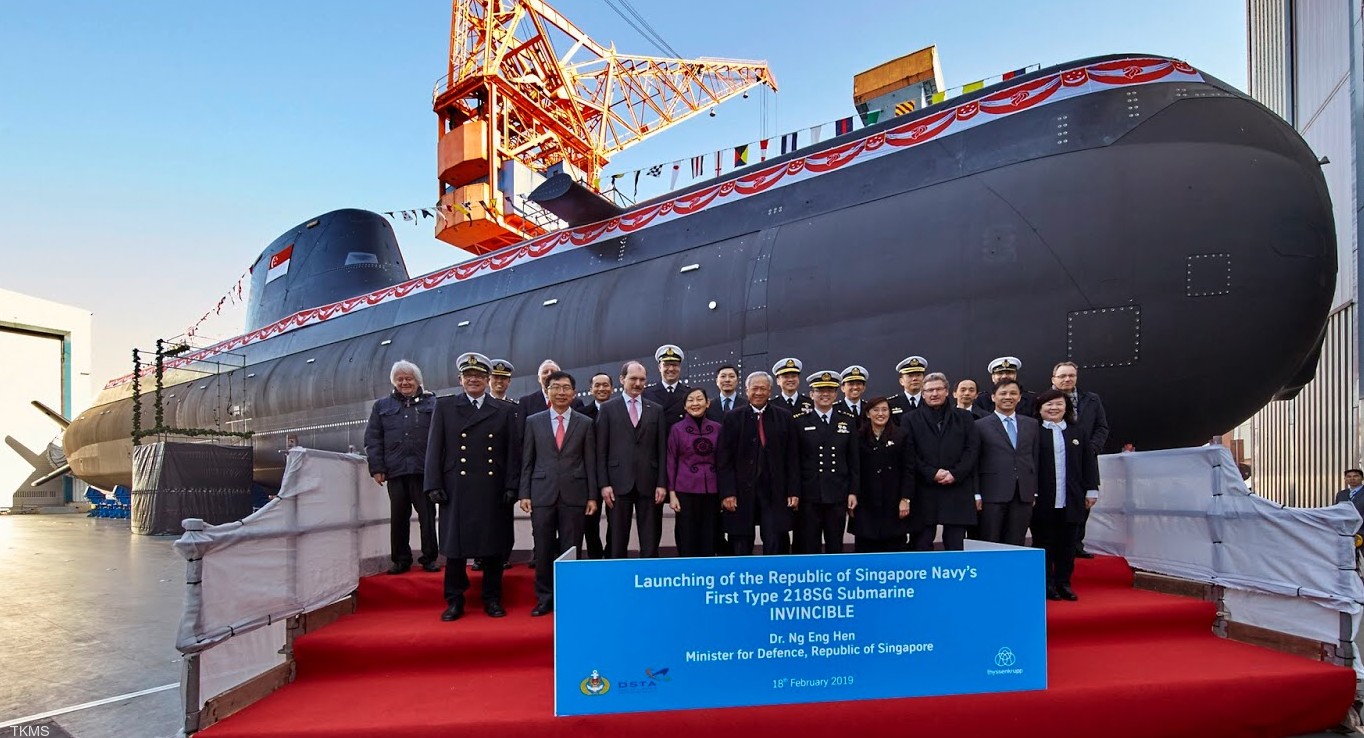 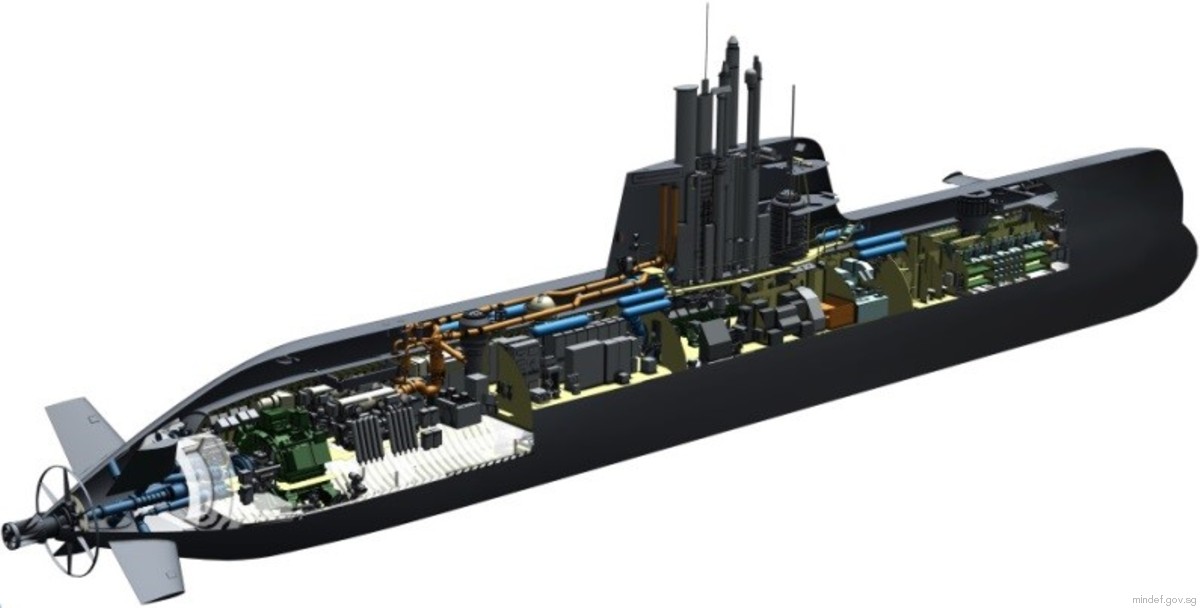 |
||||||||||||||||||||
|
|
seaforces.org
|
Republic of Singapore
Navy start page
| |
